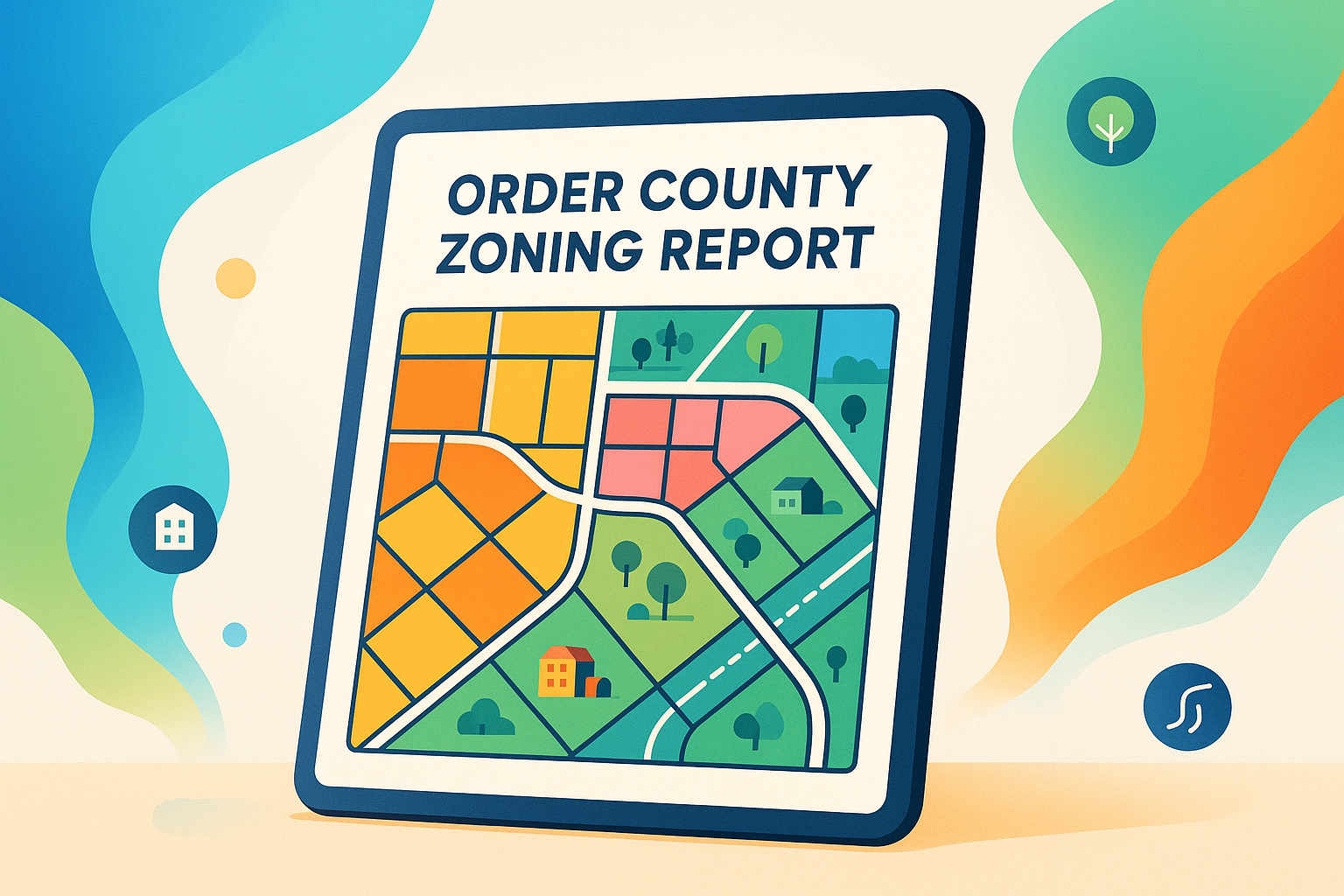AI is revolutionizing commercial real estate valuations. Here's what you need to know:
- AI analyzes massive datasets quickly, finding patterns humans might miss
- It improves valuation accuracy and speed while reducing costs
- Key components: data analysis, predictive modeling, and automated valuation models (AVMs)
- Main benefits: better accuracy, time/cost savings, and big data processing
- Challenges include data quality issues and integration with legacy systems
AI isn't replacing humans, but enhancing valuations when combined with expert knowledge.
| Aspect | Traditional Method | AI Method |
|---|---|---|
| Time | Weeks | Hours |
| Data analyzed | Limited | Massive |
| Accuracy | Variable | Higher |
| Cost | Higher | Lower |
To use AI effectively in valuations:
- Choose the right AI tools
- Ensure data quality
- Train your team
- Combine AI insights with human expertise
The future of AI in real estate valuations includes smarter machine learning, IoT integration, and blockchain for security. While not perfect, AI is becoming essential for staying competitive in the rapidly evolving commercial real estate market.
Related video from YouTube
What is AI in Commercial Real Estate?
AI in commercial real estate (CRE) is shaking things up. It's using smart algorithms and machine learning to crunch numbers, predict trends, and automate tasks. This tech is changing how pros value properties and make investment calls.
AI and Machine Learning Basics
AI in CRE is like a super-powered assistant. It can:
- Chew through mountains of data in no time
- Spot patterns that humans might miss
- Get smarter as it goes along
Machine learning, AI's brainy cousin, learns from past data to figure out property values. It looks at things like:
- Where the property is
- How big it is
- What's nearby
- Parking spots
- Crime in the area
How AI is Flipping the Script on Valuations
AI is giving CRE valuations a major upgrade:
1. Automated Valuation Models (AVMs)
AVMs are like the speed demons of property valuation:
| Method | Time | Accuracy |
|---|---|---|
| Old school | Days/Weeks | Hit or miss |
| AVM | Hours | On point |
Take HouseCanary - their AI can now nail valuations for most U.S. homes.
2. Big Data Crunching
AI gobbles up tons of data, including:
- Economic stuff
- Who's moving where
- What's getting built next door
This helps investors make smarter calls. JLL's Skyline AI tool is a prime example - it's dishing out data-driven insights left and right.
3. Crystal Ball Analytics
AI is peeking into the future of markets, helping CRE pros:
- Sniff out good deals
- Dodge bullets
- Fine-tune their portfolios
4. Scary-Good Accuracy
Forbes says ML-powered AVMs are getting scary good at pricing:
- Homes: off by less than 4%
- Commercial spots: within 6%
That kind of precision means better decisions and less nail-biting for CRE investors.
"AI isn't just shaking up the old ways - it's opening doors to work smarter and faster." - LeaseUp Insights
Bottom line: AI in CRE isn't just a fancy toy. It's becoming a must-have for anyone who wants to stay in the game. This tech is changing the rules, and fast.
Main Parts of AI Valuations
AI valuations in commercial real estate boil down to three key components:
- Data gathering and analysis
- Predictive modeling
- Automated valuation models (AVMs)
Let's break these down.
Gathering and Analyzing Data
AI systems eat data for breakfast. They crunch:
- Property details (size, age, features)
- Location info (neighborhood, amenities)
- Market trends
- Economic indicators
But that's not all. AI also taps into:
- Social media
- Satellite images
- IoT sensors
Here's a kicker: McKinsey says nearly 60% of a valuation's predictive power can come from these non-traditional data points.
Making Predictions
Once the data's in, AI gets to work. Here's the process:
1. Clean the data
Out with the errors, duplicates, and outliers.
2. Feature engineering
Turn raw data into useful variables.
3. Train the model
Fit the AI to historical data.
4. Test and refine
Make sure it's accurate before deployment.
Real-world example? REDD trained an AI model using past appraisals, rent rates, vacancy ratios, and economic factors. The result? Over 80% accuracy in property valuations.
Automated Valuation Models (AVMs)
AVMs are the workhorses of AI valuations. They estimate property values in hours, not weeks.
| Traditional Method | AVM |
|---|---|
| Takes days/weeks | Takes hours |
| Human error prone | Consistent results |
| Limited data use | Analyzes vast datasets |
AVMs aren't just fast - they're accurate too. Forbes reports:
- Home valuations: Less than 4% error
- Commercial properties: Within 6% of actual value
But remember: AVMs are only as good as their data. Garbage in, garbage out.
"Automating the pricing process means less time, fewer human errors, and the capability to consider more data."
AI valuations aren't perfect, but they're changing the game. They're faster, more accurate, and can spot trends humans might miss. For CRE pros, it's a tool that's becoming hard to ignore.
Advantages of AI in Real Estate Valuations
AI is shaking up commercial real estate valuations. Here's why it's a game-changer:
Better Accuracy
AI valuations blow traditional methods out of the water. Why?
- It's all about the data. AI crunches TONS of it, cutting out human bias.
- It's always up-to-date, reflecting what's happening in the market RIGHT NOW.
- It spots patterns that humans might miss.
Take Zillow's Zestimate. It uses AI to value homes based on a bunch of data points. Buyers and sellers get a clearer picture of what a property's really worth.
Time and Money Saver
AI doesn't mess around:
| Traditional Method | AI Method |
|---|---|
| 4+ weeks | 3-4 days |
| Manual data entry | Automated data collection |
| Limited analysis | Deep market dive |
Michael Taylor from Financial Services Advisory puts it this way:
"AI-driven valuation models are really focused on getting appraisals done more efficiently."
Translation? Everyone saves time and money.
Big Data Whiz
AI eats big data for breakfast:
- It pulls info from everywhere - tax records, sales history, even social media.
- It processes in hours what would take humans weeks.
- It juggles tons of variables at once.
Look at CoreLogic. They use AI to offer spot-on valuations by crunching data from all over. In fast-moving markets, that's a serious edge.
Problems and Limits
AI in commercial real estate valuations isn't perfect. Here are the main issues:
Data Issues
AI needs good data. But that's often a problem:
- Bad info: Old records or typos can mess up AI predictions.
- Outdated stuff: Real estate changes fast. Old prices don't work for today.
- Biased history: If past data is unfair, AI might copy those mistakes.
Dr. Brandon Lwowski says:
"Bad data in AI models leads to wrong valuations, bad market analysis, and poor decisions."
Ethical Concerns
AI brings up some tough questions:
- Fairness: AI might accidentally favor some groups or areas.
- Privacy: How do we keep people's info safe?
- Transparency: It's hard to explain AI decisions. People might not trust it.
The big worry? AI could make biased choices without anyone noticing.
Working with Old Systems
Many firms still use old tech. Mixing in AI can be tough:
| Problem | Result |
|---|---|
| Old software | Data doesn't move easily |
| Training needs | Costs time and money |
| People resist change | Some might not want new AI tools |
Amy Gromowski from CoreLogic warns:
"The model is only as good as the data that you feed it."
Firms need to be careful when updating their systems and data.
To make AI work in real estate, companies need to fix these issues. It's not just about cool tech – it's about using it right.
sbb-itb-11d231f
How to Use AI in Valuations
AI can supercharge your real estate valuations. Here's how:
Choosing AI Tools
Pick what works for you:
| Tool Type | Use Case | Example |
|---|---|---|
| AVMs | Quick estimates | CoreLogic's AVM |
| Predictive Analytics | Market forecasts | HouseCanary |
| Data Processing | Big data handling | TensorFlow |
Prep Work
1. Clean your data
Trash errors and old info.
2. Train your team
Get your staff up to speed on AI tools.
3. Keep it fresh
Regular updates = better results.
AI + Human Touch
Blend tech with expertise:
- AI for initial numbers
- Experts double-check
- Combine AI insights with in-person checks
Pro tip: Start small. Test on a few properties first.
AI's a tool, not a replacement. As CoreLogic's Amy Gromowski puts it:
"The model is only as good as the data that you feed it."
Remember: AI + human smarts = valuation gold.
Tips for Better AI Valuations
AI can boost your real estate valuations. But you need to use it right. Here's how:
Keep Data Clean
Bad data = bad valuations. It's that simple. To keep your data clean:
- Update property info often
- Zap duplicates and errors
- Use the same data formats
A study of 7,133 US properties showed clean data bumped up valuation accuracy by 3.9%.
Mix AI and Human Smarts
AI is clever, but humans still know best. Use both:
| AI Does Best | Humans Do Best |
|---|---|
| Quick analysis | Local know-how |
| Spot patterns | Nuanced calls |
| Crunch big data | Ethical thinking |
Nathan Brannen, a real estate pro, says:
"Appraisals are so accurate because an appraiser actually visits the property."
Let AI crunch numbers. Then let humans fine-tune the results.
Keep AI Models Fresh
AI models can get stale. So:
- Test accuracy each month
- Feed in new market data
- Compare AI results to real sales
One study found that fresh AI models cut valuation errors by 2.5%.
Remember: AI isn't magic. It's a tool. Use it smart, and your valuations will rock.
What's Next for AI in Real Estate Valuations
AI is shaking up real estate valuations. Here's what's coming:
Smarter Machine Learning
AI's getting better at spotting patterns we might miss. Take Zillow's Zestimate. It now crunches millions of data points to value homes. It's not perfect, but it's improving fast.
IoT and Live Data
IoT devices are changing the game. They're giving us real-time building data, leading to more accurate valuations.
Here's how:
| IoT Feature | Valuation Impact |
|---|---|
| Energy tracking | Sharper operating cost estimates |
| Occupancy sensors | Better space use insights |
| Maintenance alerts | Clearer building condition picture |
The Edge, Deloitte's Amsterdam office, uses IoT to tweak lighting and temperature. This tech doesn't just boost comfort - it ups property value.
Blockchain for Security
Blockchain's making property deals safer and clearer. It's not all about Bitcoin. In real estate, blockchain can:
- Create rock-solid ownership records
- Speed up property transfers
- Make lending safer and easier
Some companies are already using blockchain for property records. This cuts fraud and speeds up transactions.
But here's the thing: AI and blockchain aren't magic wands. They work best when paired with human expertise.
Real Examples
AI is shaking up commercial real estate valuations. Here's how:
Zillow's Zestimate: AI Home Valuation
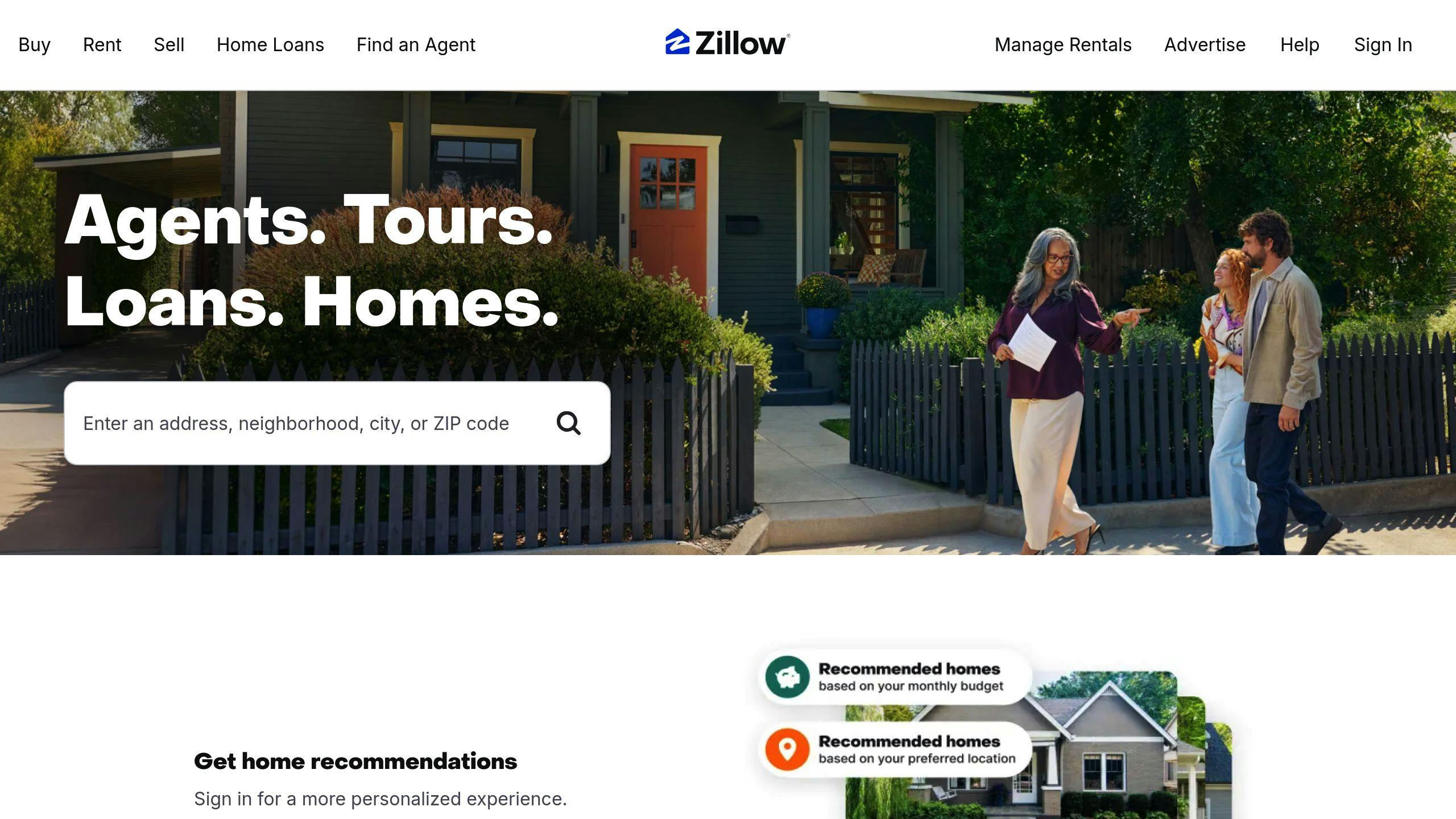
Zillow's Zestimate uses machine learning to value homes. It crunches millions of data points from public records, MLS listings, and user submissions.
Is it perfect? Nope. But it shows AI's potential. It gives quick estimates for millions of homes, helping buyers and sellers get a ballpark figure.
HouseCanary: Crystal Ball for Investors
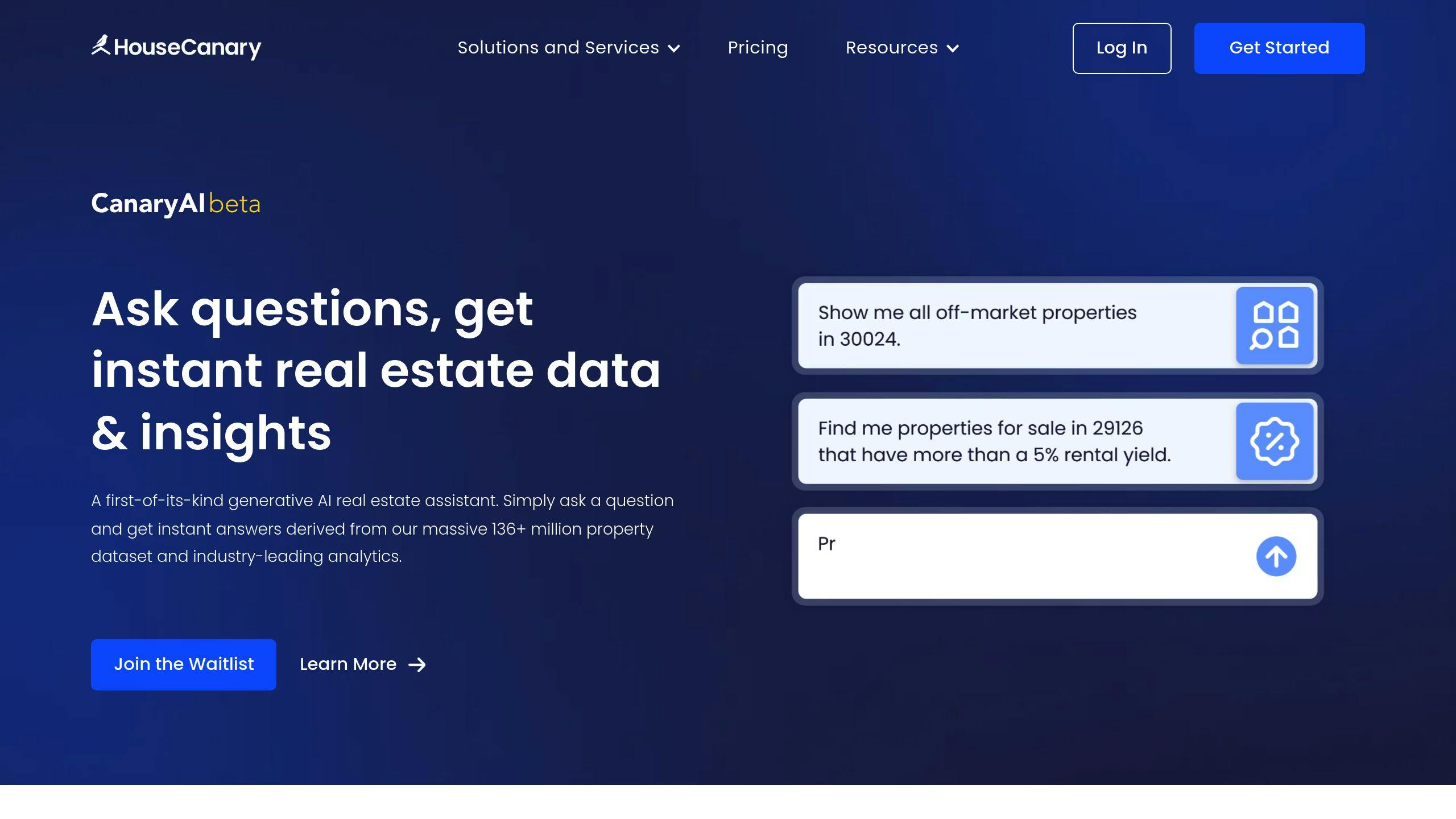
HouseCanary's AI forecasts property values and market trends. It digs into property data, market trends, and public records. The result? Insights that help investors spot opportunities before everyone else catches on.
Skyline AI: Portfolio Boost

JLL bought Skyline AI to up their investment game. This AI evaluates market conditions and property performance. It's like having a super-smart assistant helping investors manage their real estate portfolios.
Daffodil Software: AI Valuation System
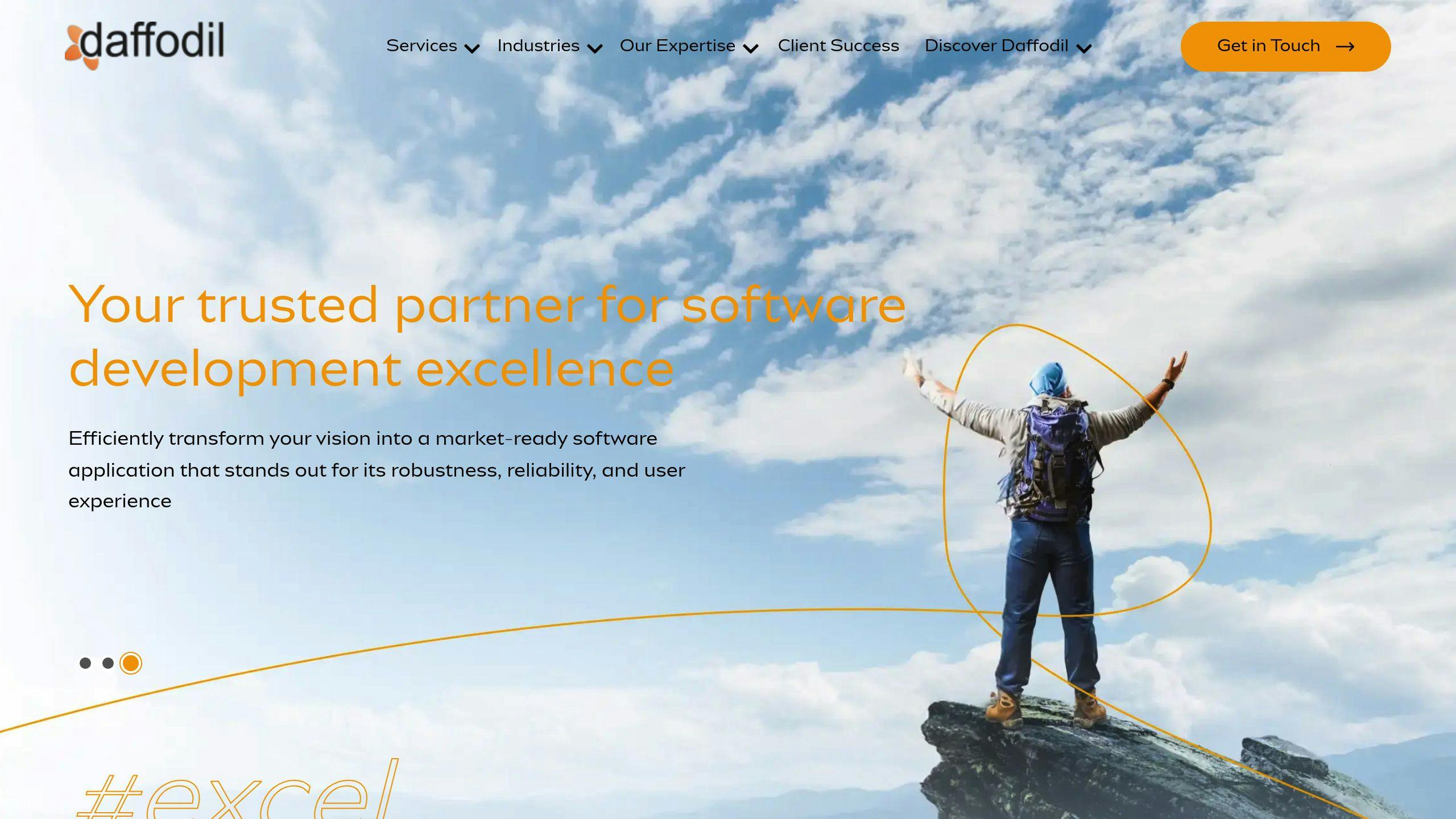
Daffodil Software built an AI valuation system for a London fintech company. The numbers speak for themselves:
| Metric | Result |
|---|---|
| Accuracy on training data | 93% |
| Training datasets used | Over 70 million |
| Data points enriched | More than 7 million |
| AI model experiments | Over 100 |
This system pulls data from 10+ sources, offering market insights, property intelligence, and neighborhood comparisons.
CoreLogic: Automated Valuation Models (AVMs)
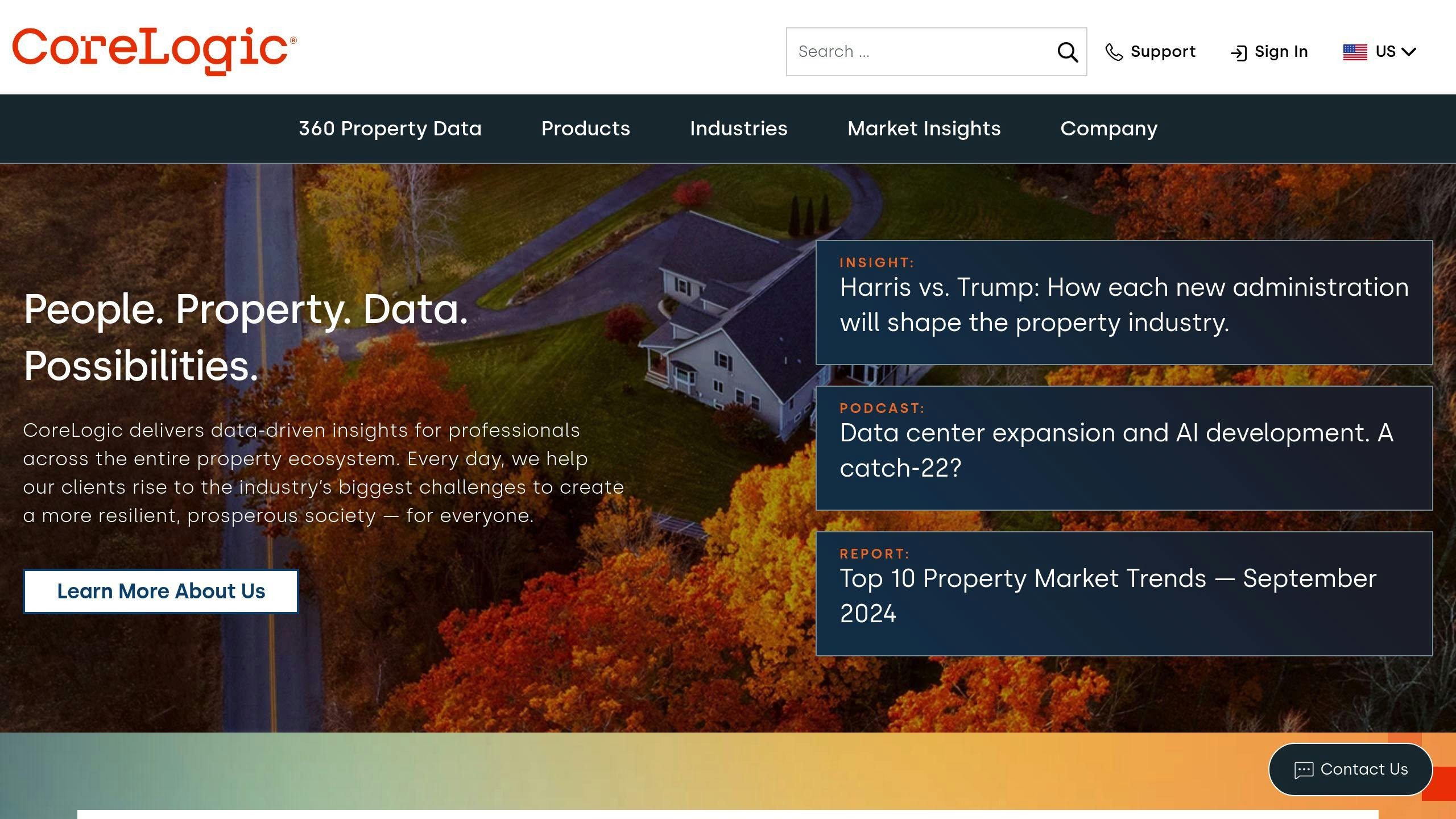
CoreLogic's AVMs offer precise valuations and market insights. They analyze property characteristics, location, historical sales, and current market trends. It's like having a local real estate expert in your pocket.
REX Real Estate: Speeding Up Transactions

REX Real Estate uses AI to make buying and selling homes smoother. Their AI tools include pricing analysis and virtual tours. The result? Faster transactions and more accurate property valuations.
These examples show AI's growing impact on commercial real estate valuations. But remember: AI is a tool, not a replacement. Human expertise is still key for interpreting results and making final calls.
Wrap-up
AI is shaking up commercial real estate valuations. It's not just a fancy gadget - it's becoming essential to stay in the game.
Why does AI matter for property valuations? Let's break it down:
- It's FAST. AI crunches numbers in minutes, not days.
- It's ACCURATE. AI spots trends humans might miss.
- It SAVES MONEY. Less time on valuations means lower costs.
But hold on - AI isn't perfect. It needs good data to work its magic. And it can't replace human smarts entirely.
Think of AI as your sidekick, not your replacement. Here's how it works:
| Task | AI Does | You Do |
|---|---|---|
| Data Analysis | Chew through big datasets | Make sense of the results |
| Market Trends | Spot patterns | Apply your local know-how |
| Final Valuation | Give a first guess | Make the call |
What's next? AI will get even better at predicting market shifts. It might even tap into smart building data for real-time valuations.
For now, the winning combo is AI plus human expertise. This tag-team approach will lead to smarter, faster, and more accurate property valuations.

